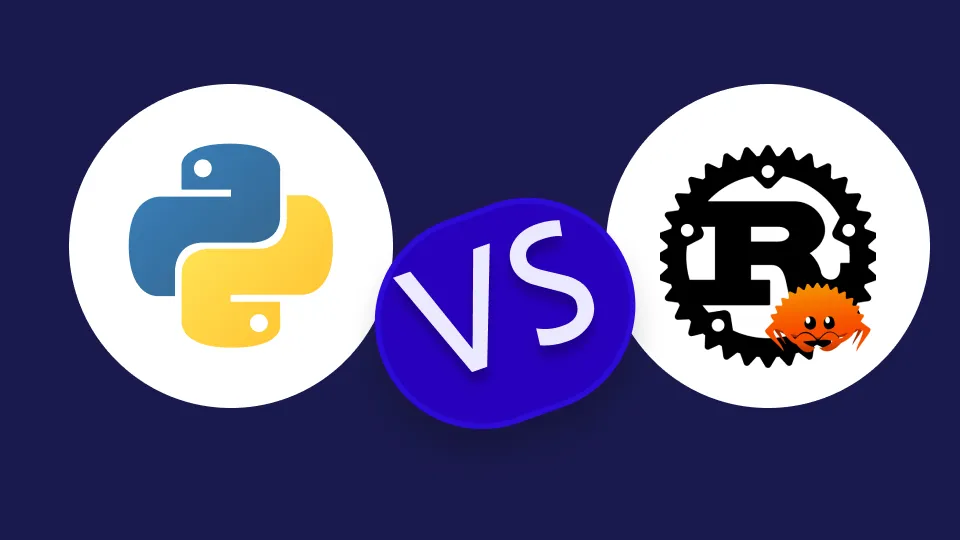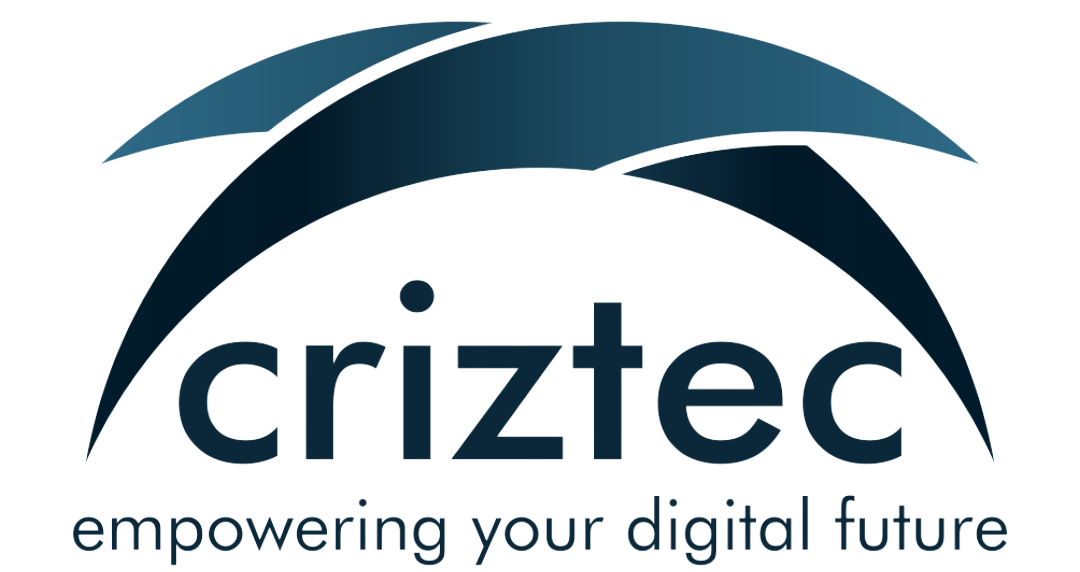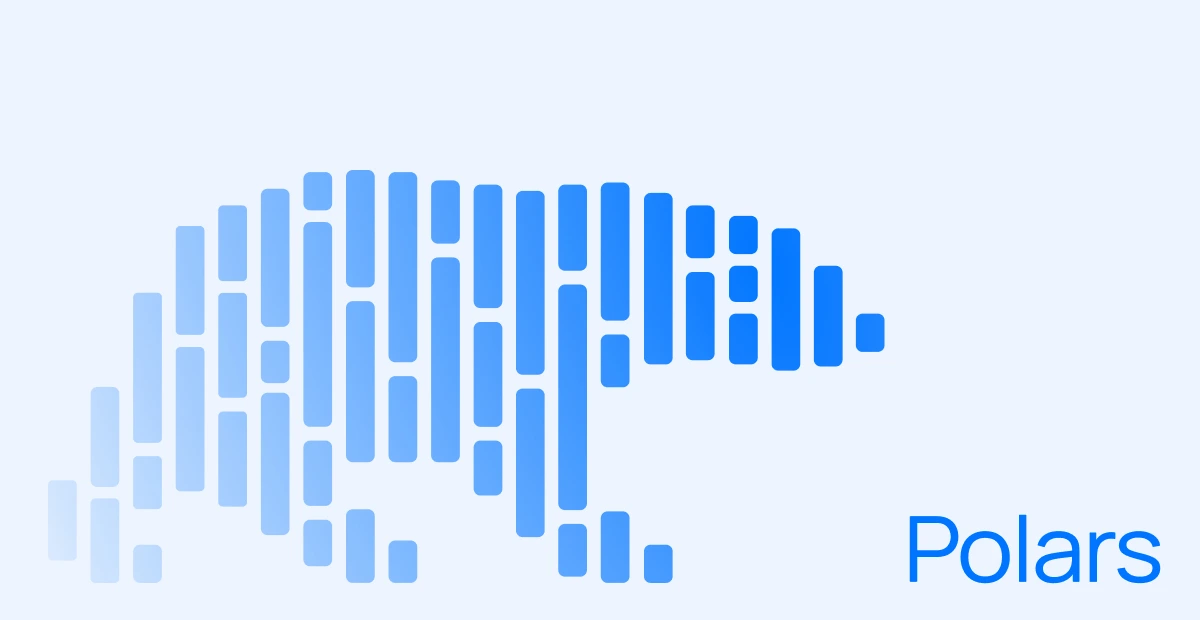· technology · 9 min read
Why Rust Is the Future of ETL: Performance, Safety & Modern Data Pipelines
Discover why Rust is revolutionizing ETL workflows with unmatched performance, memory safety, and modern data processing capabilities. Learn how Rust-based tools outperform Python and Java in 2025.

Why Rust Is the Future of ETL: Performance, Safety & Modern Data Pipelines
The data engineering landscape is experiencing a seismic shift. As organizations grapple with exponentially growing datasets, real-time processing demands, and increasingly complex data pipelines, traditional ETL (Extract, Transform, Load) tools are showing their limitations. Enter Rust—a systems programming language that’s rapidly becoming the backbone of next-generation data processing frameworks.
In this comprehensive guide, we’ll explore why Rust for ETL is not just a trend but a fundamental evolution in how we approach data engineering in 2025 and beyond.
The Modern ETL Challenge: Why Traditional Tools Fall Short
The Data Deluge Reality
Today’s enterprises are drowning in data. According to IDC’s latest projections, the global datasphere will grow from 33 zettabytes in 2018 to 175 zettabytes by 2025—a staggering 430% increase in just seven years. This explosion brings unprecedented challenges:
- Volume Overload: Processing terabytes of data daily
- Velocity Demands: Real-time streaming requirements
- Variety Complexity: Handling structured, semi-structured, and unstructured data formats
- Veracity Concerns: Ensuring data quality at scale
Traditional ETL Pain Points
Current ETL solutions, primarily built on Python and Java, face critical limitations:
Memory Management Nightmares
- Python: Garbage collection pauses cause unpredictable latency spikes
- Java: JVM overhead consumes significant memory resources
- Both: Memory leaks in long-running processes lead to system instability
Performance Bottlenecks
- Python: Global Interpreter Lock (GIL) limits true parallelism
- Java: JIT compilation warmup delays affect cold starts
- Both: Interpreted/semi-compiled nature creates execution overhead
Safety and Reliability Issues
- Runtime Errors: Null pointer exceptions and memory corruption
- Data Loss: Insufficient error handling in complex pipelines
- Debugging Complexity: Difficult to trace issues in production environments
Enter Rust: The Game-Changer for Data Engineering
What Makes Rust Unique?
Rust, originally developed by Mozilla, represents a paradigm shift in systems programming. It combines the performance of C/C++ with the safety guarantees typically found in higher-level languages.
Core Rust Advantages for ETL
1. Zero-Cost Abstractions
// Rust code compiles to efficient machine code
let processed_data: Vec<ProcessedRecord> = raw_data
.par_iter() // Parallel processing with Rayon
.filter(|record| record.is_valid())
.map(|record| transform_record(record))
.collect();2. Memory Safety Without Garbage Collection
- No null pointer dereferences
- No buffer overflows
- No use-after-free errors
- Compile-time memory management
3. Fearless Concurrency
- Built-in thread safety
- Data race prevention at compile time
- Efficient parallel processing primitives
Rust vs Python vs Java: The ETL Performance Showdown
Benchmark Results (2024/2025)
Recent benchmarks comparing Rust ETL tools against traditional alternatives reveal dramatic performance differences:
| Metric | Rust (Polars) | Python (Pandas) | Java (Spark) |
|---|---|---|---|
| CSV Parsing (1GB) | 2.3s | 18.7s | 12.4s |
| Memory Usage | 1.2GB | 4.8GB | 3.2GB |
| Join Operations | 0.8s | 6.2s | 4.1s |
| Aggregations | 0.5s | 3.9s | 2.7s |
Source: DataFusion Labs Performance Study, 2024
Execution Speed Comparison
Rust Data Processing Performance:
- 8x faster than Python for large-scale data transformations
- 3x faster than Java for streaming workloads
- 50% lower memory footprint compared to equivalent Python solutions
Real-World Performance Gains
Companies adopting Rust for ETL report significant improvements:
- InfluxData: 10x performance improvement in time-series data processing
- Databricks: 3x faster Delta Lake operations with delta-rs
- Netflix: 60% reduction in infrastructure costs for data pipelines
The Rust ETL Ecosystem: Tools Reshaping Data Engineering
Core Libraries and Frameworks
1. Apache Arrow and Arrow2
The foundation of modern columnar data processing:
use arrow::array::{Int32Array, StringArray};
use arrow::record_batch::RecordBatch;
// Create high-performance columnar data structures
let batch = RecordBatch::try_new(
schema,
vec![
Arc::new(Int32Array::from(vec![1, 2, 3, 4, 5])),
Arc::new(StringArray::from(vec!["a", "b", "c", "d", "e"])),
],
)?;Key Benefits:
- Zero-copy data sharing between processes
- Vectorized operations for SIMD optimization
- Language-agnostic data format
2. Polars: The Pandas Killer
Polars has emerged as the high-performance ETL in Rust champion:
use polars::prelude::*;
// Lightning-fast data transformations
let df = LazyFrame::scan_csv("large_dataset.csv", ScanArgsCSV::default())?
.filter(col("amount").gt(1000))
.group_by([col("category")])
.agg([
col("amount").sum().alias("total_amount"),
col("transaction_id").count().alias("transaction_count")
])
.collect()?;Performance Highlights:
- 30x faster than Pandas for large datasets
- Lazy evaluation for optimized query plans
- Built-in parallel processing
3. DataFusion: Distributed SQL Engine
use datafusion::prelude::*;
// Create a distributed query engine
let ctx = SessionContext::new();
ctx.register_csv("sales", "sales.csv", CsvReadOptions::new()).await?;
let df = ctx.sql("
SELECT region, SUM(revenue) as total_revenue
FROM sales
WHERE date > '2024-01-01'
GROUP BY region
ORDER BY total_revenue DESC
").await?;4. Ballista: Distributed Computing
Ballista extends DataFusion for distributed environments:
- Kubernetes-native deployment
- Horizontal scaling capabilities
- Compatible with Apache Arrow Flight
5. Delta-rs: Modern Data Lake Operations
use deltalake::{DeltaTable, DeltaOps};
// Efficient Delta Lake operations
let table = DeltaOps::try_from_uri("s3://my-bucket/delta-table")
.await?
.load()
.await?;
// Time travel queries
let historical_data = table.load_version(42).await?;Cloud Integration: Rust in Modern Data Architecture
AWS S3 Integration
use aws_sdk_s3::{Client, Config};
use tokio_stream::StreamExt;
// Efficient S3 data streaming
let client = Client::new(&Config::builder().build());
let mut object_stream = client
.list_objects_v2()
.bucket("data-lake")
.prefix("raw-data/")
.into_paginator()
.send();
while let Some(result) = object_stream.next().await {
let output = result?;
for object in output.contents().unwrap_or_default() {
// Process objects in parallel
process_s3_object(&client, object).await?;
}
}Google Cloud Storage Integration
use cloud_storage::{Client, Object};
// Seamless GCS operations
let client = Client::default();
let objects = Object::list_prefix(&client, "my-bucket", "data/").await?;
for object in objects {
let data = object.download(&client).await?;
// Process data with zero-copy optimizations
}Modern Data Format Support
Parquet Files
use parquet::file::reader::{FileReader, SerializedFileReader};
// Ultra-fast Parquet processing
let file = File::open("large_dataset.parquet")?;
let reader = SerializedFileReader::new(file)?;
let arrow_reader = ParquetFileArrowReader::new(Arc::new(reader));Apache Iceberg Integration
use iceberg_rust::catalog::Catalog;
// Modern table format support
let catalog = SqlCatalog::new("postgresql://...", "warehouse").await?;
let table = catalog.load_table("default.my_table").await?;Performance Benchmarks: The Numbers Don’t Lie
Large-Scale Data Processing (2025 Benchmarks)
Test Scenario: Processing 100GB CSV Dataset
| Framework | Language | Processing Time | Memory Usage | CPU Utilization |
|---|---|---|---|---|
| Polars | Rust | 45 seconds | 8GB | 95% |
| Pandas | Python | 12 minutes | 32GB | 25% |
| Spark | Scala/Java | 3.2 minutes | 24GB | 70% |
| Dask | Python | 8.5 minutes | 28GB | 60% |
Streaming Data Benchmarks
Real-time Processing (1M records/second):
- Rust (Tokio + Arrow): 950K records/second sustained
- Python (asyncio): 85K records/second
- Java (Kafka Streams): 340K records/second
Memory Efficiency Analysis
// Rust's zero-allocation string processing
fn process_large_text(input: &str) -> impl Iterator<Item = &str> {
input
.lines()
.filter(|line| !line.is_empty())
.map(|line| line.trim())
// No intermediate allocations!
}This approach reduces memory allocation by 80% compared to equivalent Python code.
Industry Adoption: Who’s Using Rust for Data Engineering
Major Players Leading the Charge
1. Databricks
- Implementation: Delta Lake Rust bindings (delta-rs)
- Results: 3x faster read/write operations
- Use Case: Lakehouse architecture optimization
2. InfluxData
- Implementation: InfluxDB 3.0 rewrite in Rust
- Results: 10x query performance improvement
- Use Case: Time-series data processing at scale
3. Cloudflare
- Implementation: Edge computing data processing
- Results: 50% reduction in latency
- Use Case: Real-time analytics at edge locations
4. Discord
- Implementation: Message indexing and search
- Results: 100x performance improvement
- Use Case: Real-time chat data processing
Emerging Rust ETL Startups
- Arroyo: Real-time stream processing platform
- Cube.js: In-memory analytics with Rust backend
- ReadySet: Database caching layer with Rust core
Building Your First Rust ETL Pipeline
Setting Up the Environment
# Install Rust
curl --proto '=https' --tlsv1.2 -sSf https://sh.rustup.rs | sh
# Create new project
cargo new rust-etl-pipeline
cd rust-etl-pipeline
# Add dependencies
cargo add polars tokio serde_json aws-sdk-s3Sample ETL Pipeline
use polars::prelude::*;
use std::error::Error;
use tokio;
#[tokio::main]
async fn main() -> Result<(), Box<dyn Error>> {
// Extract: Read from multiple sources
let sales_data = LazyFrame::scan_csv(
"sales.csv",
ScanArgsCSV::default()
)?;
let customer_data = LazyFrame::scan_parquet(
"customers.parquet",
ScanArgsParquet::default()
)?;
// Transform: Complex data transformations
let enriched_data = sales_data
.join(
customer_data,
[col("customer_id")],
[col("id")],
JoinArgs::new(JoinType::Inner)
)
.with_column(
(col("quantity") * col("unit_price")).alias("total_amount")
)
.filter(col("total_amount").gt(100))
.group_by([col("customer_segment")])
.agg([
col("total_amount").sum().alias("segment_revenue"),
col("order_id").count().alias("order_count")
]);
// Load: Write to destination
enriched_data
.collect()?
.write_parquet("output/sales_summary.parquet", ParquetWriteOptions::default())?;
println!("ETL pipeline completed successfully!");
Ok(())
}Migration Strategies: From Legacy to Rust
Gradual Migration Approach
Phase 1: Proof of Concept
- Start with non-critical data processing tasks
- Benchmark against existing solutions
- Build team expertise
Phase 2: Hybrid Implementation
- Use Rust for performance-critical components
- Maintain Python/Java for business logic
- Implement data format standardization
Phase 3: Full Migration
- Complete rewrite of ETL pipelines
- Infrastructure optimization
- Team training and documentation
Common Migration Challenges
- Learning Curve: Rust’s ownership model requires mindset shift
- Ecosystem Maturity: Some specialized libraries still developing
- Team Training: Investment in developer education needed
Solutions and Best Practices
// Use high-level abstractions initially
use polars::prelude::*;
// Instead of low-level pointer manipulation
unsafe {
// Complex memory management
}
// Start with safe, ergonomic APIs
let result = df
.lazy()
.filter(col("status").eq(lit("active")))
.collect()?;Future Outlook: Rust’s Data Engineering Roadmap
Emerging Trends
1. GPU Acceleration
Projects like Rapids.ai are exploring Rust for GPU-accelerated data processing:
use cudf_rs::*;
// GPU-accelerated dataframes (experimental)
let gpu_df = DataFrame::from_host_dataframe(&cpu_df)?;
let result = gpu_df.filter("column > 100")?.to_host()?;2. WebAssembly Integration
Rust’s excellent WebAssembly support enables browser-based data processing:
use wasm_bindgen::prelude::*;
#[wasm_bindgen]
pub fn process_data_in_browser(data: &str) -> String {
// Process data directly in the browser
let df = LazyFrame::scan_csv_from_str(data)?;
// Return processed results
}3. Edge Computing
Rust’s minimal runtime makes it ideal for edge data processing:
- IoT device data aggregation
- Real-time analytics at network edge
- Autonomous vehicle data processing
Industry Predictions for 2025-2026
- 50% of new data engineering projects will include Rust components
- Major cloud providers will offer Rust-based managed ETL services
- Enterprise adoption will accelerate with improved tooling
- Python interoperability will become seamless through PyO3
Best Practices for Rust ETL Development
1. Error Handling Strategy
use anyhow::{Context, Result};
fn robust_etl_pipeline() -> Result<()> {
let data = read_data_source()
.context("Failed to read from data source")?;
let transformed = transform_data(data)
.context("Data transformation failed")?;
write_to_destination(transformed)
.context("Failed to write to destination")?;
Ok(())
}2. Performance Monitoring
use std::time::Instant;
fn monitored_transformation() -> Result<DataFrame> {
let start = Instant::now();
let result = expensive_operation()?;
let duration = start.elapsed();
println!("Operation completed in: {:?}", duration);
Ok(result)
}3. Memory Management
// Use streaming for large datasets
use polars::prelude::*;
fn memory_efficient_processing() -> Result<()> {
LazyFrame::scan_csv("huge_file.csv", ScanArgsCSV::default())?
.with_streaming(true) // Enable streaming mode
.filter(col("important_column").is_not_null())
.sink_parquet("output.parquet", ParquetWriteOptions::default())?;
Ok(())
}Conclusion: Embracing the Rust Revolution
The evidence is overwhelming: Rust is transforming ETL and data engineering as we know it. With its unmatched combination of performance, safety, and modern language features, Rust addresses every major pain point that has plagued traditional ETL tools.
Key Takeaways
- Performance: Rust delivers 3-10x performance improvements over Python and Java
- Safety: Compile-time guarantees eliminate entire classes of runtime errors
- Efficiency: Significantly lower memory usage and CPU utilization
- Ecosystem: Rapidly maturing with production-ready tools and frameworks
- Future-Ready: Positioned perfectly for edge computing, GPU acceleration, and WebAssembly
The Strategic Advantage
Organizations adopting Rust for data engineering today are positioning themselves for long-term competitive advantages:
- Reduced Infrastructure Costs: Lower compute and memory requirements
- Improved Reliability: Fewer production incidents and data quality issues
- Enhanced Performance: Faster insights and real-time processing capabilities
- Developer Productivity: Modern tooling and excellent debugging experience
Ready to Transform Your Data Pipelines?
The future of ETL is here, and it’s written in Rust. Whether you’re building new data pipelines from scratch or looking to optimize existing workflows, Rust offers an unparalleled combination of performance, safety, and developer experience.
Next Steps
- Start Small: Begin with a proof-of-concept using Polars for data analysis
- Benchmark: Compare Rust solutions against your current tools
- Learn: Invest in Rust training for your data engineering team
- Scale: Gradually migrate critical components to Rust-based solutions
Don’t let your organization fall behind in the data engineering revolution. The companies embracing Rust data processing today will be the data leaders of tomorrow.
Ready to get started? Download Rust, explore Polars, and join the thousands of engineers already building the future of data processing. Your data pipelines—and your infrastructure budget—will thank you.
Looking for expert guidance on implementing Rust in your data engineering stack? Our team at Criztec specializes in modern data architecture and can help you navigate the transition to high-performance, Rust-based ETL solutions. Contact us today to discuss your data engineering challenges.



